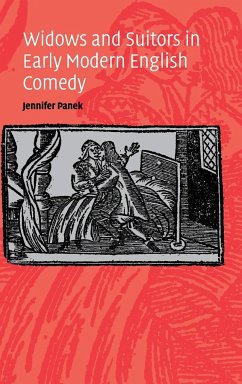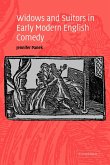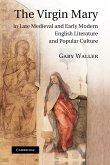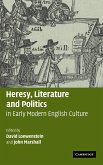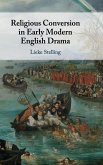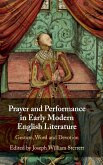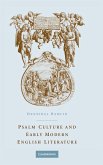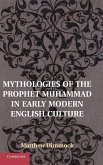Short description/annotation
Jennifer Panek examines the early modern character of the lusty widow in her cultural context.
Main description
The courtship and remarriage of a rich widow was a popular motif in early modern comic theatre. Jennifer Panek brings together a wide variety of texts, from ballads and jest-books to sermons and court records, to examine the staple widow of comedy in her cultural context and to examine early modern attitudes to remarriage. She persuasively challenges the current critical tendency to see the stereotype of the lusty widow as a tactic to dissuade women from second marriages, arguing instead that it was deployed to enable her suitors to regain their masculinity, under threat from the dominant, wealthier widow. The theatre, as demonstrated by Middleton, Dekker, Beaumont and Fletcher and others, was the prime purveyor of a fantasy in which a young man's sexual mastery of a widow allowed him to seize the economic opportunity she offered.
Table of contents:
Introduction; 1. The widow's choice: female remarriage in Early Modern England; 2. The widow's threat: domestic government and male anxiety; 3. The suitor's fantasy: courtship and compensation; 4. The husband's fear: the lusty widow as wife; 5. A playwright's response: four Middletonian remarriage plots.
Hinweis: Dieser Artikel kann nur an eine deutsche Lieferadresse ausgeliefert werden.
Jennifer Panek examines the early modern character of the lusty widow in her cultural context.
Main description
The courtship and remarriage of a rich widow was a popular motif in early modern comic theatre. Jennifer Panek brings together a wide variety of texts, from ballads and jest-books to sermons and court records, to examine the staple widow of comedy in her cultural context and to examine early modern attitudes to remarriage. She persuasively challenges the current critical tendency to see the stereotype of the lusty widow as a tactic to dissuade women from second marriages, arguing instead that it was deployed to enable her suitors to regain their masculinity, under threat from the dominant, wealthier widow. The theatre, as demonstrated by Middleton, Dekker, Beaumont and Fletcher and others, was the prime purveyor of a fantasy in which a young man's sexual mastery of a widow allowed him to seize the economic opportunity she offered.
Table of contents:
Introduction; 1. The widow's choice: female remarriage in Early Modern England; 2. The widow's threat: domestic government and male anxiety; 3. The suitor's fantasy: courtship and compensation; 4. The husband's fear: the lusty widow as wife; 5. A playwright's response: four Middletonian remarriage plots.
Hinweis: Dieser Artikel kann nur an eine deutsche Lieferadresse ausgeliefert werden.

